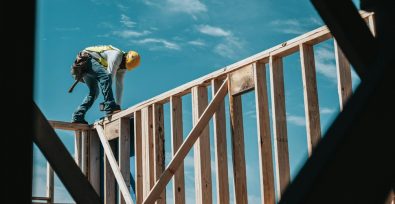A recent report published by King’s Business School highlights a critical issue within the UK’s housebuilding sector: the inadequate understanding and documentation of modern slavery risks. Despite the industry’s significant economic contribution and the political drive to increase housing supply, the risks of forced labor and labor exploitation are being largely overlooked. And that lack of awareness may be paving the way for exploitation.
Serious gaps in understanding
Around 40% of UK construction output is homebuilding. But, out of the 67 existing research documents on labor exploitation reviewed by researchers, only 12 addressed housebuilding explicitly in any way. The report was commissioned by the Director of Labor Market Enforcement and the Modern Slavery and Human Rights Policy and Evidence Centre (PEC). Senior Lecturer in International Management at King’s Business, School Dr Gabriela Gutierrez-Huerter O was one of the researchers. Dr Gutierrez-Huerter O said the report points to “serious gaps” in understanding modern slavery in housebuilding.
Dr Gutierrez-Huerter O stated:
We found that while exploitation is widely acknowledged as a risk in construction, housebuilding has been under-researched. That blind spot limits the ability of government and industry to identify or prevent harm.
Poorly understood, under-researched and largely undocumented, is how the report describes awareness of modern slavery in the sector currently. Particularly concerning given the UK government’s ongoing push to expand the supply of new homes being built. More homes mean more workers, and more workers may mean more exploitation if nothing changes.
Weak monitoring and unclear accountability = pathway to exploitation
Alarmingly, multiple barriers to enforcement and detection of modern slavery in the sector were described by research participants. Limited capacity for proactive inspections and delays between investigations and reporting were particularly concerning. In addition, the report points to safety concerns deterring inspectors from feeling comfortable doing fieldwork. Thus, compounding the challenge of identifying or addressing exploitation and holding companies accountable
Report Co-Author and Postdoctoral Researcher Dr Furqan Suhail shared:
There is a real concern that the drive to ‘get Britain building’ is not being matched by adequate enforcement capacity. Modern slavery risk thrives where monitoring is weak and accountability is unclear.
From unpaid wages and health and safety violations to debt bondage and forced labor. Overlapping forms of labor exploitation are commonly found in the construction sector. The longer the supply chain, the more opaque and poorly monitored it is. And thus, the more likely exploitation has been buried inside. Due to high levels of informal work and widespread use of labor intermediaries, homebuilding is particularly vulnerable to these types of risks. The report highlighted that migrant workers face an even greater risk of exploitation. Language barriers and limited understanding of how to report abuse means many may stay silent.
Freedom United stands beside the researchers in calling for targeted investment in data collection, including worker-centered research, improved reporting pathways, and clearer enforcement protocols that can better address risks before they escalate into severe exploitation. But responsibility doesn’t stop with government. Corporations and developers must also be held accountable for exploitation in their supply chains.
That’s why Freedom United is campaigning for stronger corporate accountability laws that ensure businesses can no longer profit from forced labor or turn a blind eye to abuse. It’s time to build better protections and ensure no one’s home is constructed tainted by modern slavery.







Freedom United is interested in hearing from our community and welcomes relevant, informed comments, advice, and insights that advance the conversation around our campaigns and advocacy. We value inclusivity and respect within our community. To be approved, your comments should be civil.